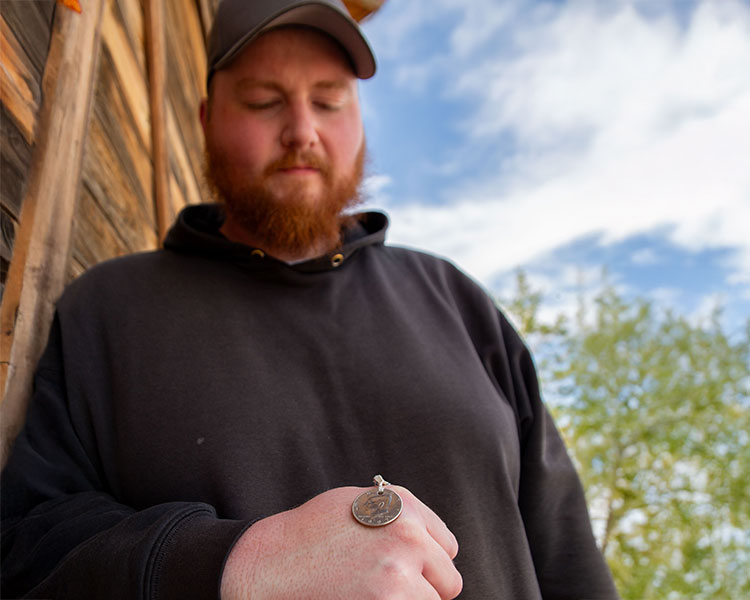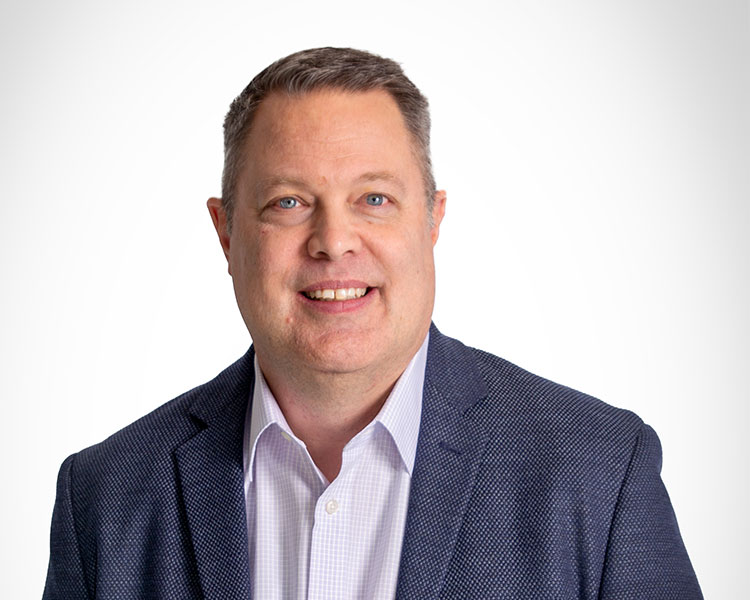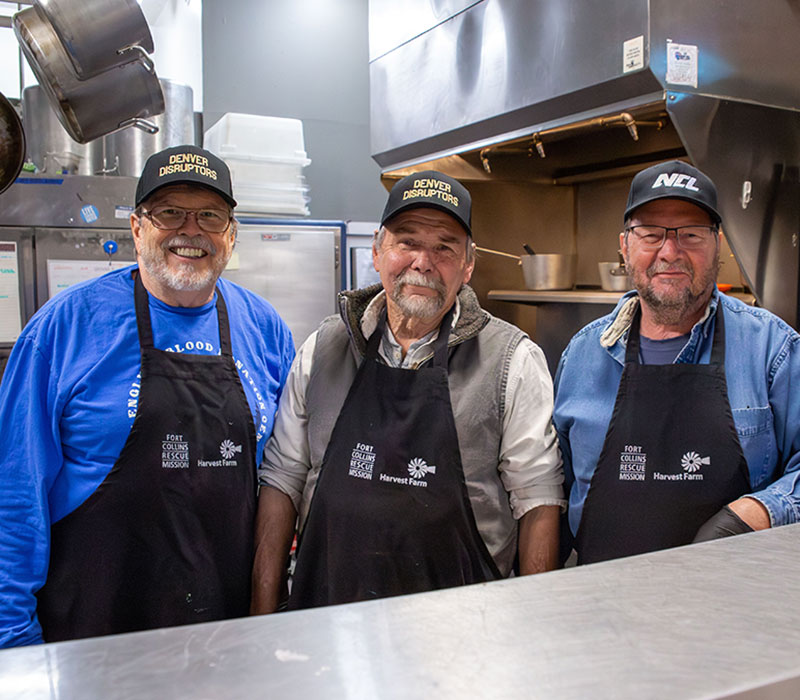As a young boy, Christian’s memories of his father were sparse and ambiguous. He remembers visiting him at a farm up north. He remembers the chickens, the cafeteria, the basketball court, and a two-legged goat named Zonka. “When I would come up to the Farm, we would go around and hang out with the animals and I would help out,” he said.
At the age of 10, Christian didn’t quite know why his father was there. He didn’t know the details about the destructive addiction Eric had gone through—the turmoil that led him to seek help through the NLP, a faith-based rehabilitation program.
“I had no clue what was going on,” Christian said. “It was weird having to share experiences [at the Farm] with somebody I had no connection with—who wasn’t there for most of my life. I had to look to other people for a father figure.”
In Eric’s 30-year battle with alcoholism, one of his lowest points was in 2005—the night he was charged with driving under the influence—and lost everything as a result. “I ended up losing my job, career, family, marriage, and home,” Eric said. “I can remember saying to myself, ‘If I can’t quit with [my family], how can I ever quit without them?’”
Eric experienced many low points in his life after that, including repeated hospital visits and failed suicide attempts. But he also took many steps to attain sobriety through intensive outpatient programs, 30-day rehabilitation programs and Alcoholics Anonymous meetings.
On January 28, 2013, Eric had his last drink. He joined the NLP a few days later.
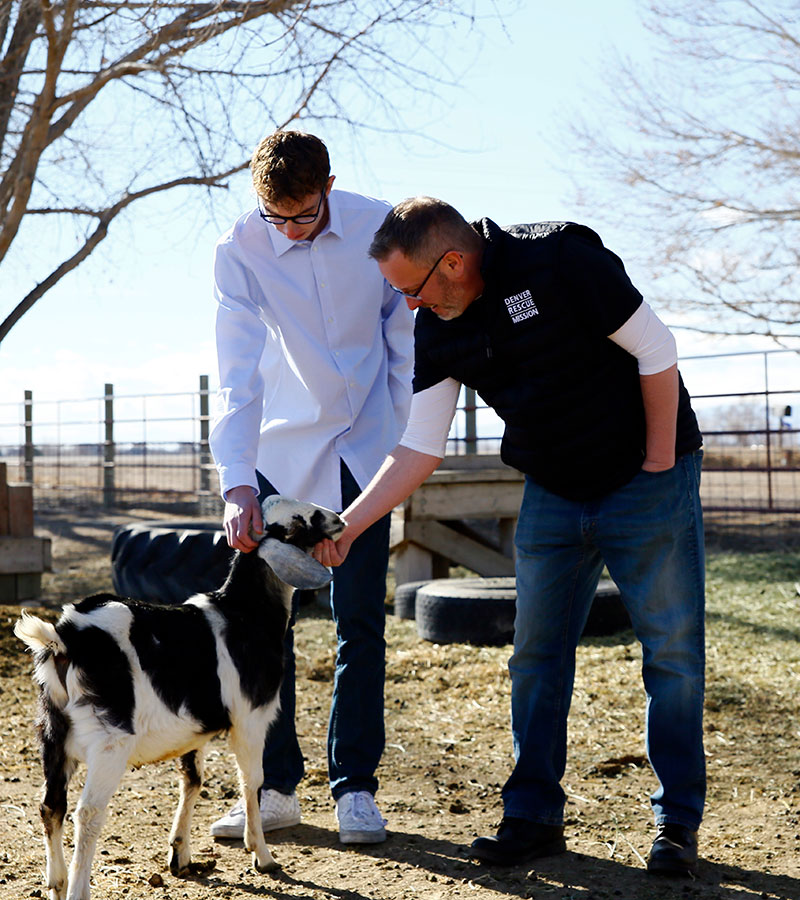
“Harvest Farm is a built-in buffer for families to talk. [During visits], you don’t have to just talk about why dad’s here. You have animals. You have space. You can walk and talk and start to rebuild the relationship.
I think that was key for me—having that ability to spend time with Christian and have him see the progress I was making. That began those steps of restoration for us.”
– Eric
“When I came to Harvest Farm, I felt [like] a failure as a son and a husband, but really as a father,” he said. “What I needed that those other programs didn’t offer was time—time to heal, time to recover and time for a new life. I needed to repair my relationships—especially with my son.”
In addition to focusing on recovery, the Mission’s six-to-twelve-month program allows participants to rebuild different aspects of their lives, including their careers, finances, and most importantly, their relationships. “They get to care for each other and heal from the wounds of the past, so that they can repair the community that they have left behind,” said Seth Forwood, senior director of Fort Collins Rescue Mission. “[For Eric], that passion to get his recovery in order was so strong because he knew he had to make his relationships right.”
Time seemed to be the very thing that Christian needed, too. It wasn’t until he was in high school that he realized Eric was intentionally mending their relationship.
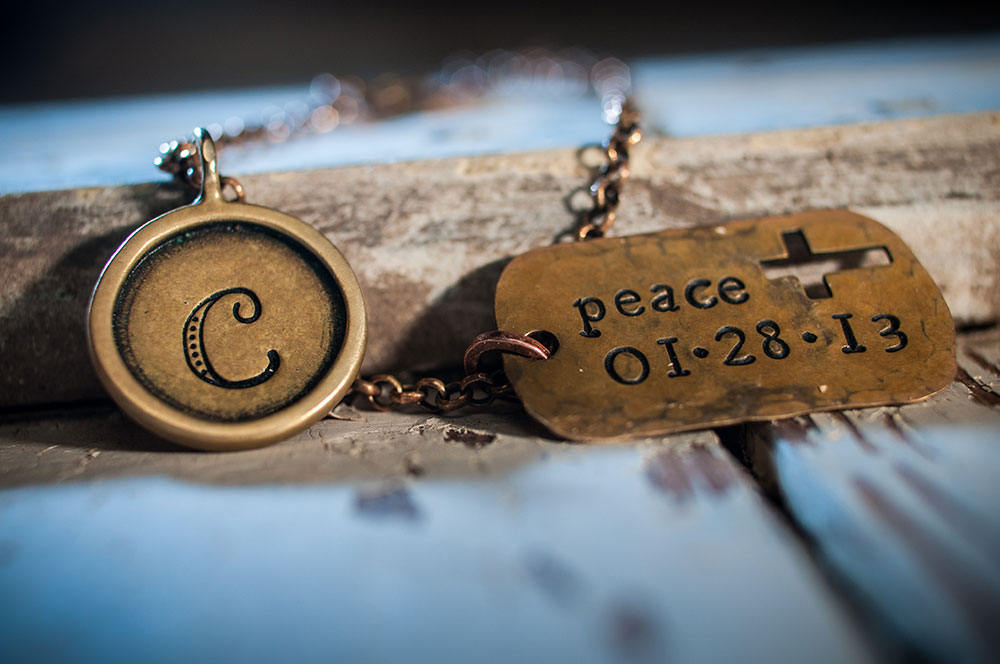
Photo credit: Scott Zischke
“When I started playing basketball, he would come to my games and try to be involved with my life, so I started to reach out more and more,” Christian said. “I remember when things changed. We went to get ice cream one night from Little Man Ice Cream.” He showed me the necklace. It had his sobriety date on it and the letter ‘C’ [for Christian]. We talked about what the Farm really was and what he was trying to accomplish in life. From that point forward, we’ve just had a connection.”
By that time, Eric had graduated from the program and was working at the front desk at Harvest Farm. He later transferred to a Mission volunteer coordinator role in Denver to be closer to Christian. “It [was] a motivation for me to try to build a relationship with him and make sure that it stays that way,” Christian said.
Christian, now a freshman at Fort Lewis College in Durango, is pursuing a degree in business administration. He hopes to one day start a magazine that shares stories of hardship, similar to his father’s. As he carries on his education, goals and dreams, Eric is now a part of his journey.
“It takes transforming your whole life,” Seth said. “It takes not just looking at your addiction, but finances, career, relationships, and spirituality. It often feels impossible, but people like Eric show an example that even in desperate situations, men can heal and become [the] sons, brothers, coworkers, and fathers they really want to be.”
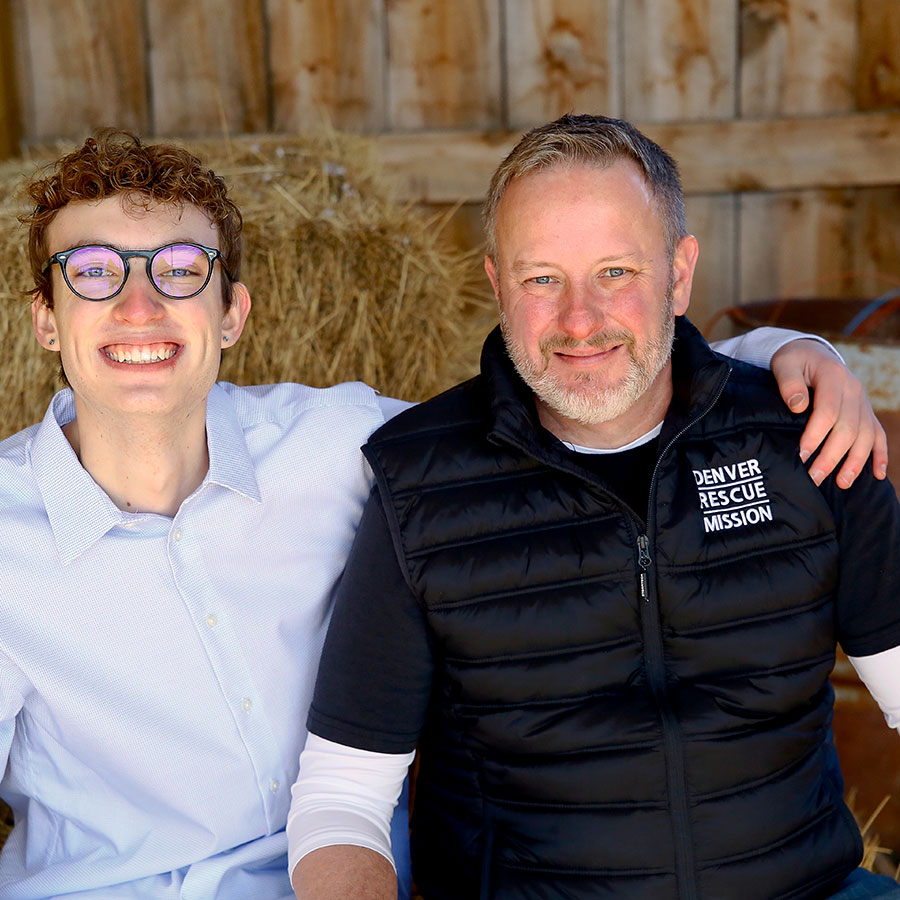
“You’re investing not in just [my] sobriety,” Eric said, “you’re investing in Christian’s future. You’re investing to break that cycle of addiction within a family.”
Help restore other families this Easter season by giving today.
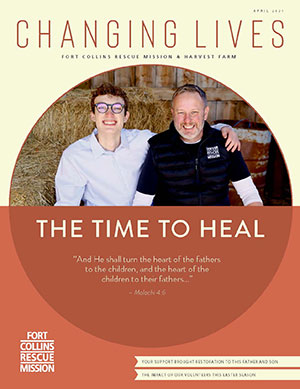
Download Full Newsletter
- Volunteer Appreciation Week
- Mission in My Words
- Letter from our CEO
- Core Strategies




